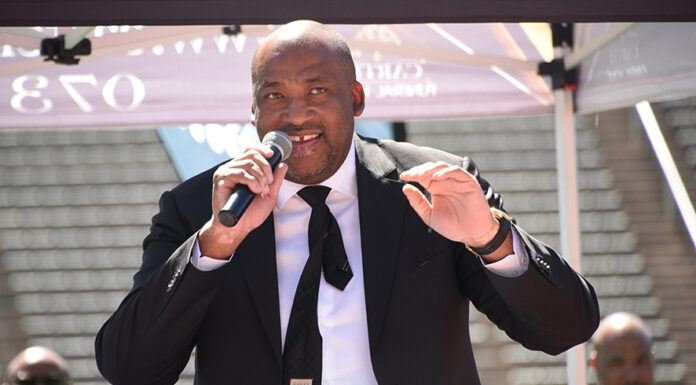Sports, Arts and Culture Minister Gayton McKenzie has admitted that there are currently no sustainable employment opportunities for local artists.
McKenzi was responding to a question from EFF MP and portfolio committee member on sports, arts and culture, Eugene Mthethwa, who asked whether the minister had any concrete plans to create long-term job opportunities for South African artists, particularly those who rely on live performances.
In his reply, McKenzie confirmed that no such plans exist.
He cited the lack of industry regulation, the growing number of people entering the sector, and limited funding as some of the key challenges.
“My department recognises the ongoing vulnerability of South African artists, especially those who depend mainly on live performances for their income,” McKenzie said.
“While various programmes have been introduced over the years to support creative practitioners, it is crucial to recognise the inherent challenges and structural limitations that make achieving sustainable employment in the sector increasingly difficult.
“The nature of the creative industries is mostly informal, project-based, and seasonal, meaning that most artists work as freelancers or gig workers without long-term contracts, benefits, or social protections.
“Live performances, whether indoor or outdoor theatre, music, or dance, depend heavily on audience attendance, sponsorship, seasonal programming, and wider economic conditions.
“Therefore, stable, full-time employment is not common in this industry, either in South Africa or worldwide.”
Number of artists more than opportunities
Mckenzie added that the increasing influx of new entrants into the sector, including young people graduating from arts institutions or self-taught creatives, continues to surpass the number of available opportunities.
“This heightens competition for limited work and, in the absence of substantial industry growth or increased public and private investment, results in underemployment and economic insecurity.
“Despite government efforts through programmes such as Mzansi Golden Economy, Cultural and Creative Industries Clusters, support for festivals, and short-term employment through the Presidential Employment Stimulus Programme, these interventions cannot absorb the scale of demand for sustainable employment in the sector.”
He noted that most of these programmes were grant-based and time-bound, offering temporary relief rather than long-term security.
McKenzie explained: “Compounding this is the stagnant or shrinking government budget allocated to the arts, culture, and heritage sector, which remains a bottom priority in the national fiscal framework.
“As a result, the department is forced to spread limited resources across an expanding list of beneficiaries, infrastructure maintenance needs and policy priorities, all while the sector demands greater support.
“Considering these structural, systemic, and financial realities, the department has redirected its efforts towards fostering a more resilient and entrepreneurial creative ecosystem.”
Long-term jobs remain impossible
He added: “This includes supporting platforms that help artists earn their income, access markets [including digital and international], and establish cooperatives or collectives.
“Nevertheless, it must be openly acknowledged that sustainable, long-term employment for most artists remains impossible under current conditions without a fundamental change in how the sector is funded, organised, and valued both economically and socially.”
This, according to McKenzie, includes assisting platforms that enable artists to create cooperatives or collectives, access markets (including digital and international ones), and generate their revenue.
However, it must be freely admitted that without a major shift in the way the industry is financed, structured, and appreciated on an economic and social level, most artists would not be able to find sustainable, long-term work in the current environment, he said.
Mthethwa expressed dissatisfaction with the McKenzie’s response.
“It is a textbook response that clearly confirms that the department has no coherent diagnoses of the crisis facing arts. The department lacks ideas of what can be done to rectify the existing failures.”
Mthethwa said McKenzie needs to collapse the inefficient funding institutions that spend more money on salaries than on the programmes and projects.
“We need the creation of a single, properly capacitated funding institution—one house that collapses the duplication, reduces admin costs, and maximises programme funding amongst other ideas.”
He said that the department, in collaboration with promoters, can host monthly commercial shows in each province, rotating performing artists to help establish a stable monthly income stream.
This approach could address the challenge of missing collaterals.




